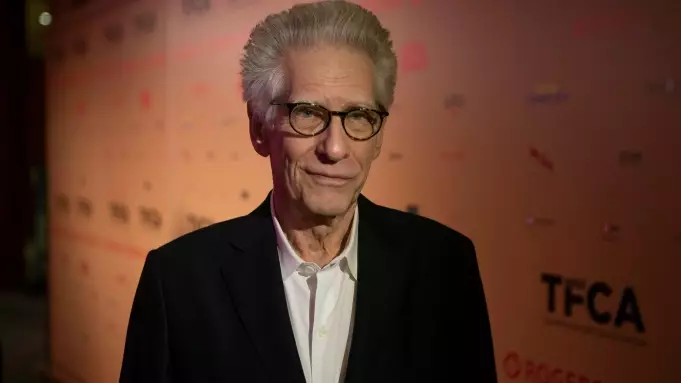In the prestigious realm of cinema, it is not uncommon for films to face heated debates, particularly when they venture into innovative territory. David Cronenberg’s recent defense of “The Brutalist,” a Best Picture Oscar nominee, underlines the scrutiny faced by contemporary filmmakers who embrace technology. Cronenberg’s comments at the London Soundtrack Festival shone a light on how a distinct bias may exist against projects integrating artificial intelligence, suggesting a deeper narrative at play—a perceived “campaign against” films that push boundaries and utilize technological advancements.
AI: A Double-Edged Sword
The controversy stemmed from the use of AI to adjust actor Adrien Brody’s accent in the film. While traditionalists might balk at the idea of leveraging AI, it begs an important question: what constitutes authenticity in filmmaking? Cronenberg likened the reaction to past scandals within the film industry, hinting at a cultural reluctance to embrace change. He rightly pointed out that directors have long manipulated voices and performances to better communicate their artistic vision. The technological evolution seen today, fueled by AI, may appear daunting, yet it reflects a natural progression in the craft.
Dissecting the Controversy
Critics often highlight the ethical implications of AI in creative spaces, fearfully predicting a future where human artistry is overshadowed by algorithms. However, èit’s crucial to recognize that this technology serves as a tool rather than a replacement. Dávìd Jancsó, the editor of “The Brutalist,” aptly asserted that AI provides solutions where financial and temporal constraints hinder creativity. Acknowledging that AI could streamline specific aspects of production does not diminish the human effort involved; rather, it enhances the ability to focus on more complex, nuanced storytelling.
The Case for Open Dialogue
One of the glaring issues in this debate is the lack of open dialogue regarding AI’s place in the film industry. Given its potential, shouldn’t the conversation be about how to harness it effectively, rather than condemning its usage? Cronenberg’s assertion that dialogue surrounding AI can be controversial highlights the need for a more inclusive discussion. Rather than shunning filmmakers for their innovative practices, the industry should celebrate the evolution of storytelling, allowing for a blend of tradition and technology.
Innovation vs. Tradition
In a world rapidly evolving with technological advancements, holding onto rigid notions of creativity can stifle potential. Filmmakers like Brady Corbet and their teams should not be vilified for exploring new tools; instead, they ought to be acknowledged for navigating the murky waters of innovation amidst a conservative landscape. The mention of Brody and Felicity Jones’s rigorous preparation with dialect coaches underscores that the essence of performance remains intact, even when technologies are employed. Nonetheless, the true art of cinema should reflect an amalgamation of human skill and innovative tools.
Defending “The Brutalist” against unfounded criticism serves as an essential reminder to embrace the tools of innovation with open arms. As the industry grapples with the role of AI, it’s time to shift the narrative from skepticism to appreciation, championing the ingenious ways filmmakers blend tradition with pioneering technology.


Leave a Reply